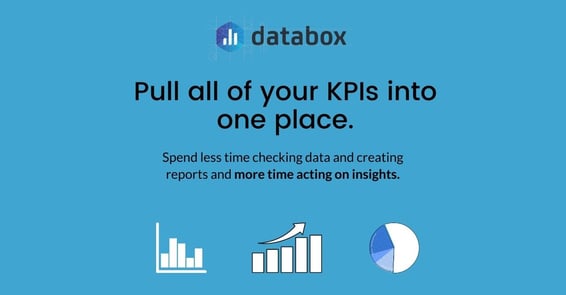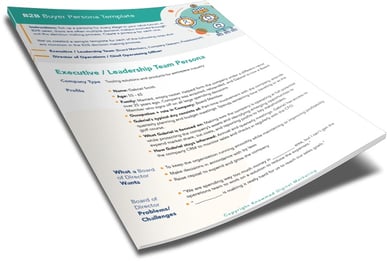author
Diona Kidd
Digital marketing is critical to the ongoing success of your business, especially in today’s “virtual” economy. If your marketing team is overwhelmed and unsure where to focus, start with simplification. Simplifying your digital marketing reduces distraction and increases your chances of achieving your goals. It’s easy to overcomplicate your digital marketing efforts, wasting valuable resources like time and money. If you can’t easily articulate your digital marketing plan and tie it back to your company’s financial goals, there’s a significant risk of disappointment and lack of ROI.
How can you simplify your digital marketing plan? Use a proven template. Take a look at our guide below, and craft a winning digital marketing plan template that will support your business as it grows.
Be Challenge/Solution-Oriented
Marketing has always revolved around the challenge/solution dynamic, and it still has a place in digital marketing. Keep it simple with a four-step approach to setting goals to solve your biggest challenges.
What is it that you want to accomplish with your digital marketing, and what impact will this have? What happens to your business if you don't achieve this goal? By making your goals S.M.A.R.T., you can measure your progress. S.M.A.R.T goals are:
- Specific
- Measurable
- Attainable
- Realistic
- Timely
For instance, you might decide the goal is to add 60 new customers this year from your digital marketing efforts. If you hit this goal, you'll be able to meet other goals - hiring new team members, buying more equipment, offering more services, etc. If you don't hit the first goal, your other goals go unmet. To make this goal achievable and measurable, break it down to a monthly goal. On a monthly basis, you'll need to add 5 customers a month from your digital marketing efforts. Adding 5 new customers is measurable and much less overwhelming than adding 60.
Many marketers set up digital market goals in terms of website visitors and conversions; but setting up goals for actual customers or deals ensures that you’ll see ROI from your digital marketing efforts.
Digital Marketing Strategy Toolkit
The sheer number of digital marketing channels and tools available to you can be more of a problem than a solution. Before you begin crafting your digital marketing strategy, gather all of the following information:
ChannelsWhich channels are the most popular with your target audience? If your website generates leads for your business, you can find this information through Google Analytics Acquisition Reporting.
TopicsWhich topics are competitors using to gain market share, and where are potential customers researching these topics? Ahrefs Content Gap tool can help you find these topics.
KPIsWhich key performance indicators are the most effective? If you don’t know the answer to this question, it’s OK, there are tools and resources to help you begin.
First, learn about the three most important digital marketing KPIs:
- Acquisition and Customer Journey Data
- Customer Value
- Conversion Data
Next, select a tool to help you measure these KPIs. We highly recommend Databox Databoards.

Audience
Creating content for the right audience is a critical part of any digital marketing strategy. Remember, keep it simple and stick to your original goal. Using our example goal from above, to gain 60 new customers, we’ll build a plan to attract the right audience with the right type of content.
Personas
Defining your “ideal audience” begins with building personas. If you’re a B2B company, personas are a very powerful tool when used correctly. Use our B2B Buyer Persona Template to get started.
Content Planning
Once you’ve identified your top 3-5 buyer personas, identify the type of content that resonates with them online. For some companies, white papers and educational materials are best. For others, brand building pieces such as press releases, award announcements, and reviews are key. If you’re not sure, type your top industry keywords into Google, review a few competitor sites from Page One, and make a list of the type of content they are promoting on their website.
You’ll see a variety of all of the following:
- Topical blog posts that promote thought leadership
- Evergreen content that provides long term answers to customer questions
- Social media posts
- Downloadable assets and free offerings
- Newsletter subscriptions
- Contests and events that attract your audience
- Webinars and podcasts
- Mobile-friendly content
Get to Know The Buyer Journey
Finally, creating a digital marketing strategy that meets your buyer at every stage of their journey is key for long-term success. Many brands do an excellent job of creating content to attract brand new clients, but they ignore their existing customers who may need additional services or products in the future. This is especially true in the B2B space and for companies who are investing in an enterprise SEO strategy.
Learn more about creating content for every stage of the sale funnel as you explore the buyer journey for your ideal customers.
Your digital marketing strategy will help you grow your business and take it to the next level, or it will serve as a learning experience for next year. When you work with an experienced, award-winning digital marketing agency, you’ll benefit from their experience in using the right tactics and tracking the right KPIs to help your brand succeed online.
.webp?width=900&height=548&name=wyatt-mobile%20copy%20(2).webp)


